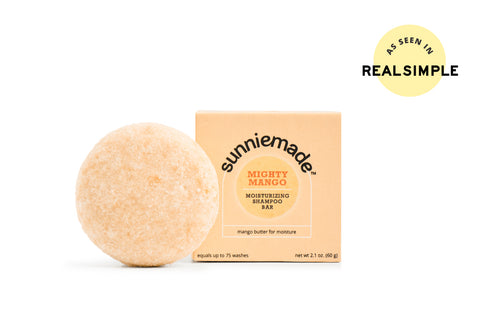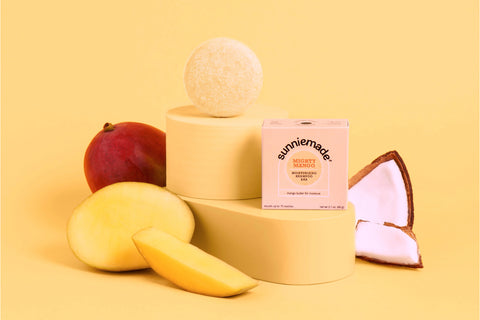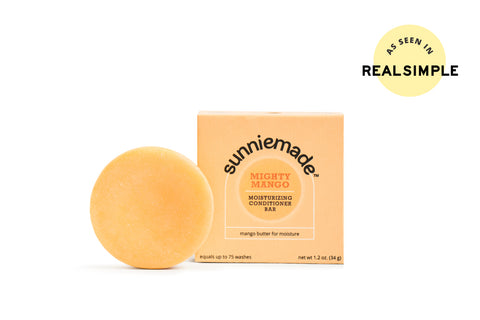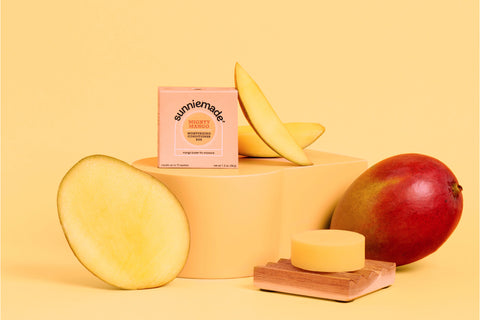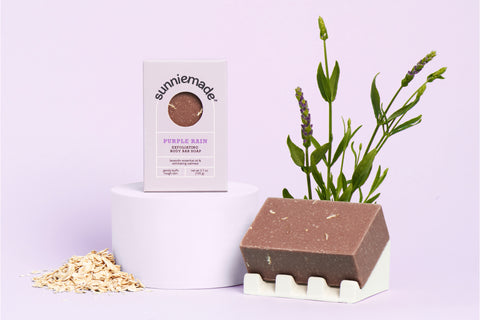The Power of Plants

In the world of green beauty, we talk a lot about the power of plants. The term “plant-based” has become the latest buzzword to permeate grocery store shelves and get stamped across plastic personal care bottles. While the term has become diluted and commercialized, it’s more than a trend. It's a reawakening of one of the oldest symbiotic relationships of all time: plants and animals.
All life on earth depends on plants. Before there were people, there were plants. They blanket the earth in their calming, cleansing, and healing properties, creating food and shelter for the organisms that inhabit the earth. They filter and clean our air, generating the oxygen we need to breathe. They provide us with the materials for clothing, medicine, warmth, shade and so much more. Plants are critical to our existence, and when we recognize this, we understand the importance of reinvesting in this life-giving resource.
Plants Feed and Heal
Plants have been used for thousands of years to feed and heal humankind. Whether we’re following ancestral traditions of medicinal plants or a plant-based diet, we’re relying on nature’s abundance and biodiversity to nourish our bodies. It’s widely recognized that plant-based diets reduce rates of chronic disease and extend our lifespans. Yet, in our current system of global capitalism, it’s easy to lose sight of plants’ healing powers. Corporations often push processed foods and prescriptions – which are easy and lucrative to monetize – when the best cure is often growing in a field nearby.
Plants Nourish Skin and Hair

Botanicals derived from fruits, vegetables, and herbs are rich in antioxidants, vitamins, and minerals that nourish skin and hair. Plant-based formulations give consumers confidence that products don’t contain synthetic chemicals, fragrances, fillers, or artificial colors which which may have endocrine-disrupting properties or be otherwise toxic to the environment or human health. When formulating effective, nourishing products, we needn’t look any further than the earth-derived skin superfoods, like ultra-cleansing coconut oil, strengthening rosehip oil, moisturizing mango butter, and smoothing chia seed oil.
Plants Improve Our Surroundings
Whether we’re warming up a drab corner of the house with an easy-to-care-for potted plant or spending a Saturday forest bathing, plants can improve mood, relieve stress, and enhance overall wellbeing. Plants serve as the backdrop to our lives, and humans have evolved to feel a sense of tranquility in their presence. Plants even bring us trends, seasons and change, guiding us through the rhythm of life with their cues, like new growth, color change, bounty and austerity. When you think of the continuous change we’re exposed to by plants, its no wonder we have an instinctive desire to update our wardrobes and swap out our home decor – its in our nature.
We Have a Responsibility to Plants
Our relationship with plants is reciprocal – when we give to them, they give back to us, in all the ways above and many more. We evolved together, some may even say that plants domesticated us. Michael Pollen’s The Botany of Desire shows how the fundamental human desires – sweetness, beauty, intoxication, and control – are inherently linked with the plants that satisfy them: the apple, the tulip, marijuana, and the potato. But our reciprocity with plants is waning – and our indifference to them has lead to global issues like monoculture, deforestation, loss of biodiversity, and more. When we find ways to consider and celebrate plants, we can turn mindfulness into missions – leading to a rebalancing of our relationship with plants.
Plants Not Plastic
Our singular goal as a company is to put more plants — and less plastic — on this earth. For us, this is more than a single initiative or a response to trends: this has been our core mission from day one and is embedded in everything we do, from products to packaging to philanthropy. Here’s how we deliver on this goal:

- Product: Our effective, plant-powered formulations are completely free from parabens, phthalates, SLS/SLES, synthetic fragrances and dyes, animal cruelty, and animal products. This ensures that we protect both people and the planet from ingredients that can harm the environment, animals and human health.
- Packaging: Our bars come in boxes — not bottles — so our packaging is completely plastic-free. Each box is both recyclable and compostable and printed with soy-based inks on 100% recycled paper. Each hair care bar replaces up to three plastic bottles, and each bar of soap is equivalent to one bottle. Further, our solid, low-weight, long-lasting products significantly reduce emissions compared to liquid products.
- Philanthropy: We are a 1% for the Planet partner and direct all of our donations to organizations that support reforestation efforts. This helps offset the paper packaging we require, and ensures that we’re truly delivering on our commitment to putting more plants — and less plastic — on this earth.


